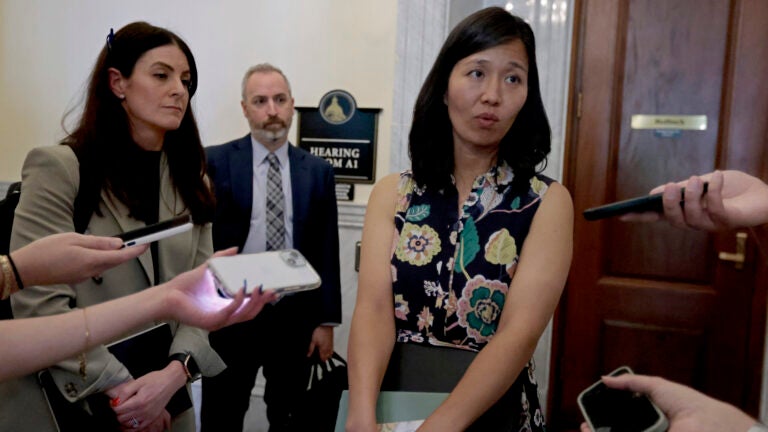Boston.com Today
Sign up to receive the latest headlines in your inbox each morning.

Weeks into a dispute between lawmakers and business leaders, Boston Mayor Michelle Wu announced a compromise to temporarily increase commercial property taxes to avoid a “dramatic spike” for residents in the coming years.
Wu said the Greater Boston Chamber of Commerce, the Boston Municipal Research Bureau, NAIOP Massachusetts, and the Massachusetts Taxpayers Foundation agreed to a proposal that would raise the maximum tax shift levels over three years. Currently, the state allows the city to tax commercial property at a rate that’s at most 175 percent higher than the tax on residential property.
The three-year plan will push that rate up to 181.5 percent during this fiscal year. In the two following fiscal years, the rate won’t exceed 180 percent, then 178 percent.
The increases should mitigate projected tax spikes for city residents. Wu’s office previously said an average single-family home in Boston was facing a 14 percent property tax increase year over year, and the quarterly tax hike in January would’ve been close to 28 percent in the new year.
“For Boston to be a home for everyone, our residents and businesses depend on each other to thrive,” Wu said in a statement. “As we continue working together on the challenges facing our communities and economy, I’m grateful for the strong leadership and partnership from across our neighborhoods and business community to plan for our shared future and economic growth.”
The proposal also bolsters financial support for small businesses, Wu announced. The city can appropriate up to $45 million throughout the length of the proposed hike for small businesses, and the personal property tax exemption threshold for those businesses will be raised from $10,000 to $30,000.
“This is a wise compromise, albeit a short term one that calls upon all of us to focus on additional measures to protect both residential and commercial property owners such as restraining spending increases and incentivizing economic development,” said Marty Walz, the interim president of the Boston Municipal Research Bureau, a fiscal watchdog organization.
Wu will file a home rule petition to implement the plan, which will then be approved by the Boston City Council, the Massachusetts House of Representatives and Senate, and signed by Governor Maura Healey.
Previously, Boston City Council approved Wu’s initial plan in June to temporarily increase the tax rate up to 200 percent over a five-year schedule. Wu also got approval from the Massachusetts House of Representatives in July after she agreed to use her executive powers to change the peak to 185 percent over three years.
However, the ultimate compromise, reached ahead of a late November deadline, lowered that peak to 181.5 percent for this fiscal year. The rates will be finalized and approved in November, and the Massachusetts Department of Revenue will certify it in December.
Sign up to receive the latest headlines in your inbox each morning.